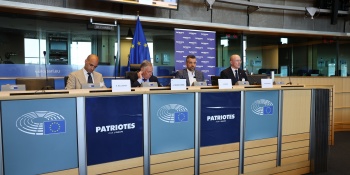Published: 01.07.2013

Alda Gross is eighty-two Swiss citizen who wants to commit assisted suicide. Although not suffering from any clinical illness, she submitted that, being over 80, she is unwilling to continue suffering the decline of her physical and mental faculties. In particular, she explained that she was becoming increasingly frail, had difficulties concentrating and was unable to take long walks. Having unsuccessfully attempted to find a doctor willing to issue the prescription required to obtain a lethal dose of sodium pentobarbital, she applied to the Swiss system of justice. The Swiss Federal Supreme Court considered that there was no obligation on the State to guarantee an individual access to a lethal drug.
Ms Gross complained to the European Court of Human Rights that, by denying her the right to decide by what means and at what point her life would end, the Swiss authorities breached Article 8 (right to respect for private and family life) of the Convention. The Court voted 4:3 in favour of complaint.
As Lawyers from Alliance Defending Freedom point out a „right to die does not exist under the Convention. Court has recognized that some individuals may wish to commit suicide in a manner of their choosing”. This decision is considered to be a dangerous step forward, towards declaration by the Court that art. 8 of the ECHR warrants a right to assisted suicide. It might be avoided if the Grand Chamber finds there was no infringement of the Convention.

Wednesday's presentation in Brussels of the European Union reform plan developed by Poland’s Ordo Iuris Institute and Hungary’s Mathias Corvinus Collegium garnered significant interest. Nearly a hundred MEPs and their staff from many countries came to the presentation of this proposal.

• The pressure on the European Union’s southern borders has continued unabated since the great migration crisis of 2015.

• Representatives of Ordo Iuris took part in the second round of consultations ahead of the 58th Session of the UN Commission on Population and Development (CPD58) on global health policy.
